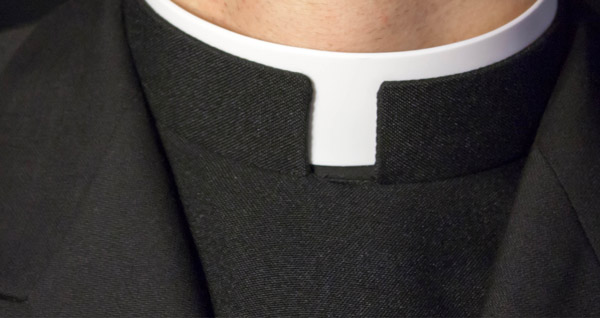
At Sunday Mass, you may hear an announcement that your church is receiving a new pastor, or see a notice in the bulletin that says a new parochial vicar is coming to your parish.
Most people in the pews think that this simply means a different priest will provide the sacraments and celebrate Mass, but those titles and assignments have more meaning in the life of the Church.
Assignments that a priest receives come with specific responsibilities, some of which are set forth in the Code of Canon Law.
In the Diocese of Charleston, the bishop decides which priest receives each assignment, said Msgr. Ronald R. Cellini, vicar for priests.
“He receives recommendations from the priest personnel board, and he accepts them or rejects them as he chooses,” Msgr. Cellini said. “We offer him good information and then the final decision is always his.”
Here are the basic titles for the assignments priests receive and what they mean:
Parochial vicar
A parochial vicar is a priest who has been assigned to assist the pastor of a parish in the guidance and direction of the parish itself. Newly ordained priests are frequently given this assignment.
“The parochial vicar is like an assistant, and he performs the duties the pastor asks him to do,” said Msgr. Charles H. Rowland, pastor of Holy Spirit Church on Johns Island.
Parochial vicars celebrate Mass and perform other sacramental duties such as weddings and baptisms. They can offer counseling to parishioners, lead ministries and perform other duties within the parish, but do not have the leadership role of a pastor.
Parochial vicars generally stay at a parish for about two years before being reassigned, according to Msgr. Cellini. Often the next step for a priest who has served as a parochial vicar is to become a pastor.
Pastor
A pastor is appointed by the bishop to be responsible for the leadership and welfare of a parish.
“He’s in charge of not only the spiritual but also the physical welfare of the parish itself,” Msgr. Cellini said.
The spiritual responsibilities of a pastor are numerous and set forth in the Code of Canon Law. Canon 528 says pastors are responsible for the instruction of the faithful, including regular reading of Scripture and preaching in homilies; 528.2 states that a pastor must also make sure the Eucharist is at the center of parish life.
Canon 529 says pastors must also make every effort to know the people they serve and to minister to them personally, including helping the sick and dying and visiting with families. They must also tend to the other daily responsibilities of parish leadership, ranging from supervising building efforts to financial matters.
The assignment of pastor is one of the most important a diocesan priest can receive and usually is given only after he has spent several years in parishes as a parochial vicar. There is no specific length of time for a priest to serve as pastor.
Administrator
An administrator is a priest who has the same rights and obligations of leadership as a pastor. A priest is often appointed administrator of a parish if the previous pastor has died, retired or had to leave because of illness or another reason. An administrator reports to the bishop just as a pastor would but serves on a temporary basis until a permanent pastor is named.
Canonical administrator
A canonical administrator is a priest appointed by the bishop to supervise the spiritual welfare of a parish, generally when there is no pastor in residence. A canonical administrator makes sure the general sacramental and spiritual life of a parish continues but does not need to be in residence at the parish.
Other possible assignments
Rector
This term is used in the United States for those who head the Cathedral parish in the diocese.
Administrator pro-tem
Temporary administrator. Most likely named for a period of time until a full-time administrator or pastor is assigned.
Supply priest
An unassigned priest who can fill in for any of the diocesan priests who may be on vacation, sick leave, or performing other diocesan functions. Supply priests are sometimes visitors to the area or retired priests.


